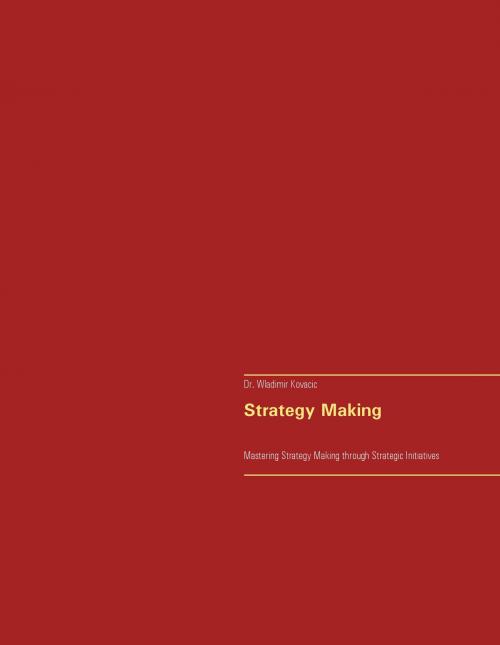| Author: | Wladimir Kovacic | ISBN: | 9783743182813 |
| Publisher: | Books on Demand | Publication: | February 13, 2017 |
| Imprint: | Language: | English |
| Author: | Wladimir Kovacic |
| ISBN: | 9783743182813 |
| Publisher: | Books on Demand |
| Publication: | February 13, 2017 |
| Imprint: | |
| Language: | English |
Strategic initiative implementation has evolved in recent years as a new and progressive form of strategy making. In this regard, strategic initiative implementation constitutes one of the central topics of strategic management regarding how firms can renew their most valuable sources of competitive advantage: the firm's idiosyncratic resources and knowledge base. Strategic management concepts and practical guidelines are still lacking on how strategic initiative implementation affects a company's idiosyncratic resources and knowledge base and what kinds of challenging effects may evolve during the strategic initiative implementation. Therefore, the aim of this book is to enhance our understanding of how strategic initiative implementation affects a firm's most valuable sources of competitive advantage and how thinking in strategic initiatives changes the thinking of traditional strategic Management disciplines. The book proposes a new way of strategy making concepts through proposing a new theory that depicts the dysfunctional effects of strategic initiative implementation. New thoughts are proposed to enhance a firm's existing core capabilities in the context of strategic initiative implementation and the interactions between ongoing initiatives. Furthermore, the book highlights the role and value of strategic initiative related dynamic capabilities. New insights into the challenges and limitations of extending and recombining the emerging knowledge bases from ongoing initiatives depict the evolution of dysfunctional knowledge. This book is a valuable source for both, practitioner and scholars to enhance their daily work and thoughts.
Strategic initiative implementation has evolved in recent years as a new and progressive form of strategy making. In this regard, strategic initiative implementation constitutes one of the central topics of strategic management regarding how firms can renew their most valuable sources of competitive advantage: the firm's idiosyncratic resources and knowledge base. Strategic management concepts and practical guidelines are still lacking on how strategic initiative implementation affects a company's idiosyncratic resources and knowledge base and what kinds of challenging effects may evolve during the strategic initiative implementation. Therefore, the aim of this book is to enhance our understanding of how strategic initiative implementation affects a firm's most valuable sources of competitive advantage and how thinking in strategic initiatives changes the thinking of traditional strategic Management disciplines. The book proposes a new way of strategy making concepts through proposing a new theory that depicts the dysfunctional effects of strategic initiative implementation. New thoughts are proposed to enhance a firm's existing core capabilities in the context of strategic initiative implementation and the interactions between ongoing initiatives. Furthermore, the book highlights the role and value of strategic initiative related dynamic capabilities. New insights into the challenges and limitations of extending and recombining the emerging knowledge bases from ongoing initiatives depict the evolution of dysfunctional knowledge. This book is a valuable source for both, practitioner and scholars to enhance their daily work and thoughts.















